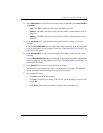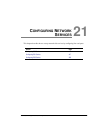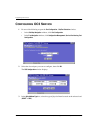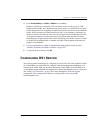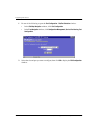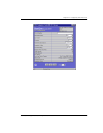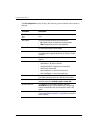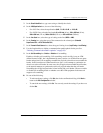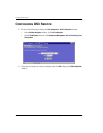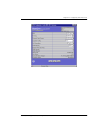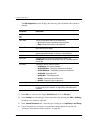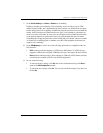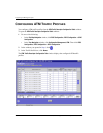
Chapter 21: Configuring Network Services
Avidia System Configuration and Management User Manual 421
3 In the Circuit Identifier box, type a text string to identify the circuit.
4 In the
LBO/Equalization box, do one of the following:
• For a DS1 line, select the equalization (
0 dB, -7.5 dB, -15 dB, or -22.5 dB)
• For a DSX1 line, select the line length (
0 to 133 feet (40 m), 133 to 266 feet (81 m),
266to399 feet
(121 m), 399 to 533 feet (162 m), or 533 to 655 feet (200 m)).
5 In the
Line Code box, select the type of coding on the line (B8ZS or AMI).
6 In the
Framing box, select the type of line connected to the selected port (Extended
SuperFrame DS1
or AT&T D4 format DS1).
7 In the
Transmit Clock Source box, select the type of timing in use (loopTiming or localTiming).
8 Use the Loopback box to initiate a communication path loopback for the port. See
“Initiating Communication Path Loopbacks” on page 563.
9 In the
Cell Scrambling box, Enable or Disable cell scrambling.
Enables or disables cell scrambling. Cell scrambling, used in Avidia, is not an ATM
defined format for DS1, but is implemented by many vendors. An ATM cell has two parts:
header and payload. Cell scrambling scrambles the payload so that it does not resemble the
header. In the event that an ATM network looses sync, it will attempt to synchronize on
what it sees as the cell header. In some cases, the cell payload can resemble the cell header,
so the network attempts to synchronize on the cell payload rather than the cell header.
Scrambling the cell payload precludes it from looking like a cell header. Choose to enable
or disable cell scrambling based on whether or not the ATM equipment in the network
supports cell scrambling.
10 Do one of the following:
• To activate the new settings, click
Set, then in the confirmation dialog click Back to
return to the
DS1 Configuration window.
• To cancel the new settings, click
Get. You can only cancel the settings if you have not
clicked
Set.



